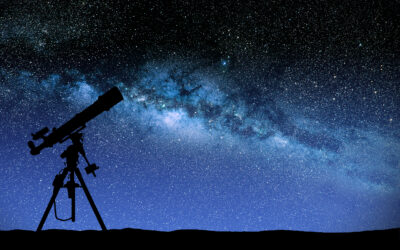The idea that we and everything in our universe might be a hologram is tied to a puzzling question in physics called the Black Hole Information Paradox.
When something falls into a black hole, the information describing it—like its shape, state, and properties—seems to vanish once it crosses the event horizon (the outer boundary of a black hole). But, according to quantum mechanics, information can’t just disappear. This creates a paradox when black holes eventually evaporate and the information seems lost forever.
Enter the holographic principle, which suggests that instead of being lost inside the black hole, the information is stored on its surface, or “event horizon.“
According to black hole thermodynamics, the amount of information a black hole can contain is proportional to the surface area of its event horizon—as mass or energy falls into a black hole, the surface area of the event horizon increases.
This was surprising to physicists because it suggests that all the information about what’s inside the black hole is somehow encoded on its surface. In other words, the 3D information inside the black hole might be “stored” or “projected” onto the 2D surface of the event horizon, much like how a hologram contains 3D images on a 2D surface.
So, if this is true for black holes, which have the highest information density possible, the same could easily apply to the entire universe. The holographic principle suggests that all the information in our 3D universe could actually be encoded on a distant 2D surface. This idea proposes that our 3D world might be a projection from a 2D boundary—just like a hologram projects 3D images from a 2D surface.
Related Articles
The History of the Telescope—Unlocking the Universe
The telescope was invented in 1608 by Dutch spectacle-maker Hans Lippershey, but it was Galileo Galilei who made it famous. By pointing his improved telescope toward the night sky, he discovered the...
The History of Stained Glass—Art in Light
Stained glass windows date back to ancient Rome, but they truly flourished in medieval Europe, decorating cathedrals, churches, and castles with vibrant, detailed scenes. Artists used a mix of sand,...
The History of the Compass—Navigating the World
The compass has been guiding travelers for over 1,000 years, first invented by the Chinese during the Han Dynasty (2nd century B.C.). Early compasses were made of lodestone, a naturally magnetized...





